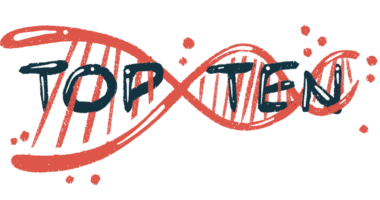EU committee favors approval of Skyclarys for FA in Europe
Decision by regulators on once-daily oral therapy expected in early 2024

The Committee for Medicinal Products for Human Use (CHMP) — an arm of the European Medicines Agency — is recommending the approval of Skyclarys (omaveloxolone) for treating Friedreich’s ataxia (FA) in people ages 16 and older in the European Union.
The European Commission now will review the CHMP’s positive opinion, with a final decision expected in the first quarter of 2024.
If approved, the once-daily oral therapy will be the first treatment authorized within the EU to slow or prevent FA progression. Skyclarys was approved in the U.S. early this year to treat the inherited disease in adults and adolescents, beginning at the same starting age.
The treatment now is marketed by Biogen, after the company acquired Skyclarys’ previous developers, the Texas-based Reata Pharmaceuticals, in August. The treatment became available in the U.S. in June this year.
“The CHMP’s recommendation for SKYCLARYS is a significant milestone toward our goal of bringing a treatment that slows the progression of FA to the patient community in the region,” Priya Singhal, MD, Biogen’s head of development, said in a company press release.
Regulatory submission for Skyclarys in EU supported by MoXie trial data
FA is caused by mutations in the FXN gene, which disrupt its ability to produce frataxin, an important protein. Low levels of frataxin affect energy production by cellular structures called mitochondria, leading to inflammation and oxidative stress — a type of cell damage caused by an imbalance between levels of toxic reactive oxygen species and those of antioxidant defenses needed to clear them.
Skyclarys works by activating the nuclear erythroid 2-related factor 2 (NrF2), a protein that activates genes that increase mitochondrial activity and antioxidant responses, and prevent inflammation.
The regulatory submission was supported by data from the MoXie Phase 2 trial (NCT02255435), which enrolled a total of 172 FA patients, ages 16 to 40, at sites in the U.S., Europe, and Australia.
The trial involved two parts: a first dose-finding part with 69 participants, and a second part involving 103 patients randomly assigned to receive either Skyclarys or a placebo.
In the first part, treatment with Skyclarys for 12 weeks, or about three months, improved patients’ neurological function compared with the placebo. Such function was measured by the modified Friedreich’s Ataxia Rating Scale (mFARS) — a standard scale to assess FA progression.
The treatment also increased Nrf2 levels, associated with improvements in mitochondrial function. The best therapeutic effects were obtained with a 160 mg daily dose.
The second part evaluated the safety and efficacy of a 150 mg Skyclarys daily dose compared with the placebo, for 48 weeks, or nearly one year. Patients given the treatment showed a significant reduction of 2.4 points in mFARS, corresponding to a reduction in disease severity.
Other clinical measures, such as participant and clinician impressions of changes, and the patient’s ability to perform everyday tasks, also generally improved with Skyclarys.
Upon completion of the main trial, participants could enter an open-label extension phase, in which all received 150 mg of Skyclarys daily. Results after nearly three years of treatment indicated that continuous Skyclarys therapy since the study’s start led to lower mFARS scores compared with patients initially receiving the placebo.
Moreover, the rate of disease progression was 55% slower in trial participants treated with Skyclarys compared with FA patients from a natural history study of the disease (NCT03090789).
Safety findings indicated the treatment was well tolerated, with the most common side effects including headache, nausea, fatigue, diarrhea, and elevated liver enzymes.
“Upon approval of Skyclarys, we look forward to leveraging Biogen’s rare disease expertise and capabilities to bring this groundbreaking treatment to patients in the European Union living with this debilitating disease,” Singhal said.








